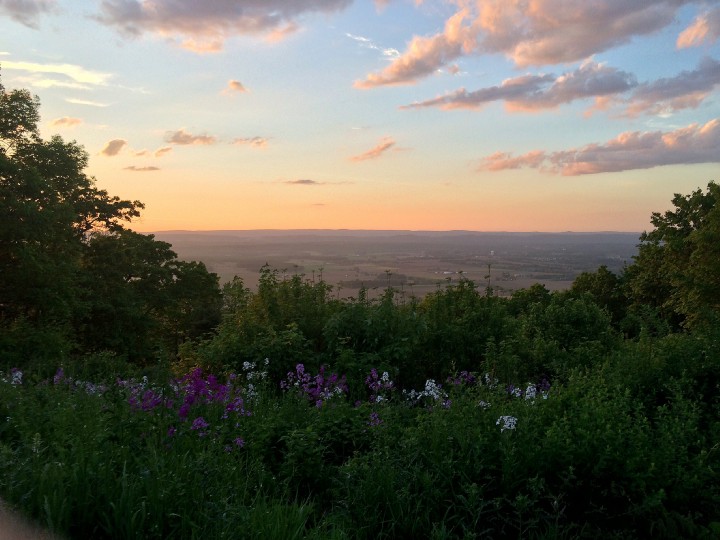
I feel incredibly blessed to be working at a place that encourages me to take time to connect with nature every day. One of my favorite feelings in the world is that first big breath you take when you walk outside and the weather is spectacular. The second that fresh air hits my lungs, I become a new (better) person. I’m more energized, positive, and at peace with myself almost instantaneously. As I sat at my desk feeling unmotivated, lethargic, and all-around negative on this chilly, dreary Friday, I couldn’t help but wonder why my attitude was so different. There has to be a reason behind this, right? People have told me that nature is “good for you” almost ad nauseam, but how? What scientific evidence actually is there?
A ton, apparently. Here are the facts I found the most fascinating and wanted to share:
Nature has been found to “get yourself out of your own head,” so to speak, which is something I personally require almost on a daily basis. In a study done by Stanford, individuals who walked in nature versus a city had much less activity in their subgenual prefrontal cortex — a hotspot within the brain for depressive rumination. Allocating attention away from yourself and onto nature allows for much more positive thinking by not focusing on negative thoughts you might have otherwise.
In addition, nature can stop you from feeling stressed. A different study was done where participants were subjected to a stressful movie and then exposed to either a nature or urban setting. Those who were exposed to an urban environment took much longer to recuperate from the stress, while “data for the nature groups evidenced restoration to the point that, broadly speaking, feeling states were slightly more positively-toned than during baseline.” In this controlled environment, nature was the cause in an overall mood improvement, even after the participant was exposed to a stressful situation. I’m fully supportive of modern medicine and all it has to offer, but if my stress can be cured by taking a walk in the woods, sign me up.
The bottom line is, why does this emotional reaction I have to nice weather even matter? As Tony Juniper, author of What has Nature Ever Done For Us?, puts it, “While for several decades the environmental agenda has been predicated on the goal of protecting nature from people, there is a new and very powerful body of material suggesting that a new storyline is needed: one based on the notion of protecting nature to conserve the wellbeing of people.” If a species being listed as endangered is not enough to convince a person to care, then maybe the fact that increased richness of biodiversity in urban area greenspaces has proven to have measurable psychological benefits for people living there would be enough to invoke empathy. Maybe instead of ostracizing those who do not support sustainability methods, we could present the argument for living an eco-friendly life in another way: here’s how helping the planet can benefit you directly.
If that still doesn’t work, then we could convince that person to go into nature every day and take a couple of deep breaths: I bet they’d feel different.
“Nature is what you should not see
the formulas, secrets kept behind everything”
– John Tiong Chunghoo
Sources:
https://www.nationalgeographic.com/magazine/2016/01/call-to-wild/
http://rsbl.royalsocietypublishing.org/content/3/4/390.full
https://www.sciencedirect.com/science/article/pii/S0272494405801847
